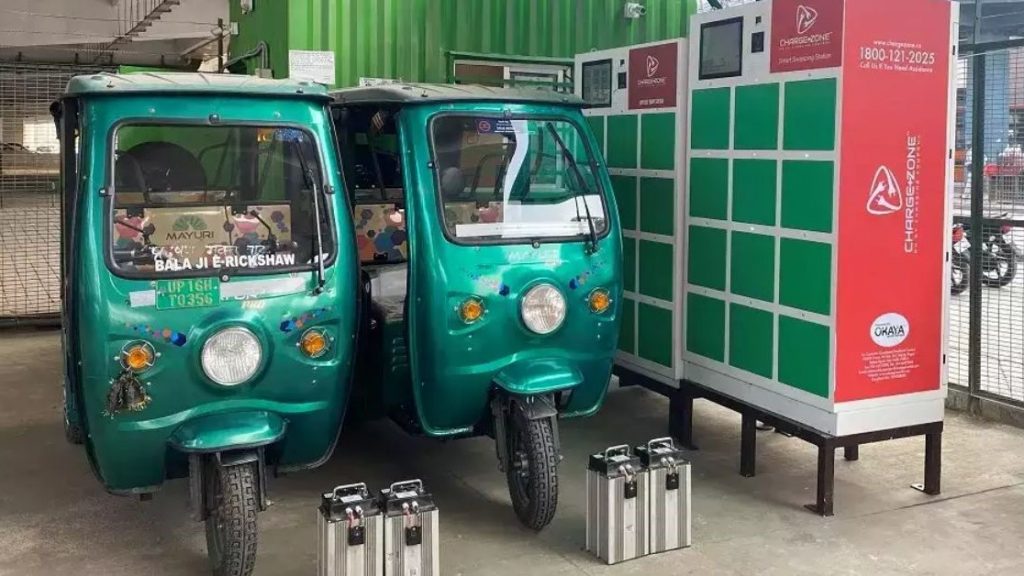The Government of India’s collaboration with the World Bank, the Asian Development Bank (ADB), and SIDBI to foster zero-emission mobility is set to revolutionize the last mile transportation sector. With the upfront FAME cash subsidy being rationalized, the USD 1 billion tripartite partnership aims to provide affordable financing rates, propelling the adoption of electric vehicles (EVs) in commercial and fleet operations.
Under this partnership, the costs of financing for commercial two and three-wheelers are expected to be halved, making them more accessible and economically viable. Furthermore, the programme will extend its support to fleet passenger cars, significantly reducing financing costs from 18-20% to 8-10%.
The migration fund, which seeks to offer loan guarantees and to reduce borrowing costs for NBFCs (Non-Banking Financial Companies), is expected to be operational by the year-end. It aims to provide the much-needed boost to OEMs of electric two and three-wheelers affected by the FAME II subsidy rationalisation, especially for last-mile deliveries.
Fleet operators are crucial for expediting the adoption of EVs in India, and they account for around 20% of total EV sales. In addition to supporting OEMs, the scheme will also provide low-interest loans to vital players in the EV ecosystem, including charging equipment providers and fleet operators.
On the potential of the USD 1 billion fund, Sandeep Divakaran, ED & CEO, Greaves Finance Limited, said, “We believe the transition to sustainable mobility is inevitable and one of the biggest unlock for accelerating this transition is to provide low-cost innovative financing options. The EV financing in India has been mainly led by startups and new NBFCs and the abundance of low-cost capital focused on sustainable mobility as envisaged by this tripartite arrangement is one of the most pivotal catalysts towards attaining net zero on mobility in India.”
Nehal Gupta, Director, AMU Leasing, said, “We believe that the recent tripartite partnership between the Indian government, the World Bank, the Asian Development Bank (ADB), and SIDBI marks a significant milestone in the journey towards zero-emission mobility. This collaboration, coupled with affordable financing rates, holds the potential to revolutionize the electric vehicle (EV) financing landscape in India. As an EV financing Non-Banking Financial Company (NBFC), we are optimistic about the positive changes that lie ahead.”
“With the infusion of the USD 1 billion, we anticipate a substantial reduction in EV financing costs, making it more accessible for individuals and businesses to adopt cleaner and greener transportation solutions. This landmark partnership signifies a clear commitment towards sustainable development and paves the way for accelerated EV adoption in the country,” she added.
The tripartite agreement is set to expand the on-going pilot program, ‘Mission EV4 ECO,’ which is dedicated to financing 50,000 electric two-wheelers and three-wheelers and fleet electric passenger cars. With the World Bank and ADB funds coming into play, the program’s corpus of INR 100 crore -150 crore will increase substantially, benefiting industry participants.
The USD 1 billion fund’s structure involves contributions from the World Bank (around USD 250 million -300 million) and ADB (USD 650 million), with SIDBI financing the remaining USD 100 million from internal sources and its global investor pool, under the supervision of Niti Aayog.
SIDBI Chairman, Sivasubramanian Ramann, declined to provide a comment.
Prime Minister Narendra Modi’s visit to the United States has expedited the process of financing clean energy funding, and the deal is expected to materialize by the year-end. India’s current goal is to reduce the emissions intensity of its GDP by 45% by 2030 compared to 2005 levels, and the tripartite partnership will play a crucial role in supporting the country’s constructive climate policies. As India assumes the G20 Presidency and the Asia-Pacific group for COP28, the partnership with international financial organizations showcases India’s capabilities to become a global clean manufacturing hub, further strengthening the nation’s commitment to a greener and sustainable future.
Tags: Asian Development Bank, Electric Vehicles, Net Zero, Niti Ayog, SIDBI, World Bank



Recent Posts
Hyundai Glovis to Retrofit Seven PCTCs with Avikus AI Navigation System
Super Terminais orders three more Konecranes Gottwald ESP.10 Mobile Harbor cranes
Covestro and HGK Shipping Extend Partnership to 2040 with Focus on Wind-Assisted Vessel Retrofit
Artemis Technologies Successfully Demonstrates 100 Percent Electric Crew Transfer Vessel at Aberdeen Offshore Wind Farm
IACS Council Advances Decarbonisation, Digitalisation and Governance Priorities at C91 Meeting in Beijing
Japan Launches Major R&D Project to Advance Shipbuilding with Alternative Fuels
EU Adopts Emissions Standards for Low Carbon Hydrogen to Bolster Clean Energy Market
Trafigura to Implement ZeroNorth’s AI Platform Across Global Fleet